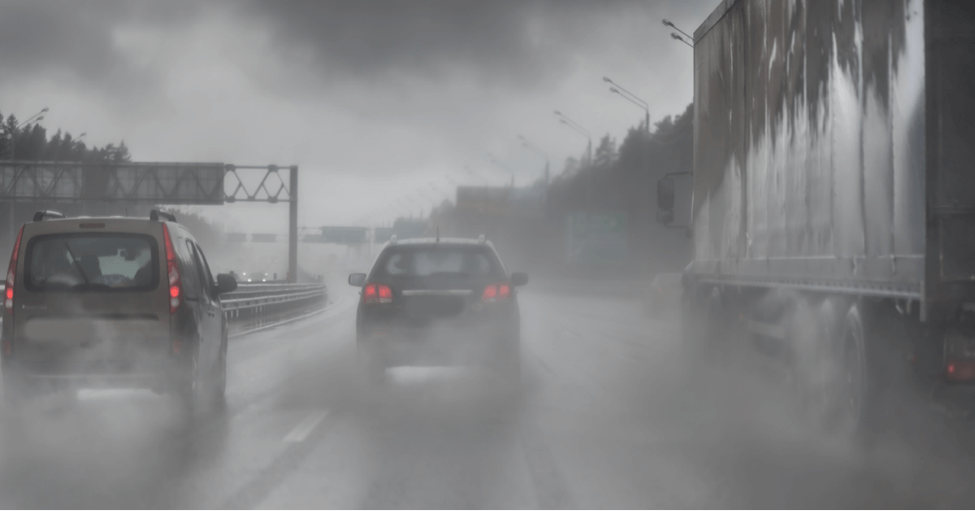Tennessee and Kentucky have seen more than their fair share of weather-related disasters in recent years, and the threat of strong storms is ever increasing. Whether it’s been a flood or a tornado reported on the news, the messaging has always involved the warning of strong and dangerous thunderstorms.
By definition, a thunderstorm produces rain showers that contain lightning. In fact, the danger of thunderstorms lies within the things they include lightning, high winds, and heavy precipitation. The combination of these can cause a variety of damage, from lightning to flash floods to tornadoes.
We know the devastation a tornado can cause, from leveling entire cities to casualty and terrifying wind gusts. However, surprisingly, more people are killed by lightning than tornadoes in the average year, according to the National Weather Service (PDF). In fact, about 50 people on average have been killed by lightning strikes every year, and many more suffer major injuries and permanent disabilities.
Thunderstorms will always include lightning, because any thunder you hear is caused by lightning. When it comes to protecting yourself, remember the “bark always comes before the bite,” so to speak. Thunder is your indicator or warning that lightning is present and capable of causing damage. So here are a few things to remember when thunderstorms come to town.
When Thunder Roars, Go Indoors
This is always the most important measure to take, and we like to make it rhyme just to help you remember. If you hear thunder, even a distant rumble, get to a safe place immediately. The safest place to avoid lightning is under a sheltered roof (the more walls the better) because it protects you from lightning.
The 30-30 Rule
After you see lightning, count to 30. If you hear thunder before you reach 30, immediately go indoors. Suspend work or activities for at least 30 minutes after the last clap of thunder you hear.
Seek a Fully Enclosed, Substantial Building
A building is a safe shelter as long as you are not in contact with anything that conducts electricity. Electrical equipment or cords, plumbing fixtures, corded phones are not safe when exposed. However, most modern buildings have interior wiring and plumbing and these act as an earth grounding system. These help carry unexpected electrical charges away from other sources safely.
For example, lightning strikes can energize components in houses. The earth grounding system can sometimes safely dissipate electricity from lightning.
If no substantial, non-concrete shelter is nearby, get in your car and wait out the storm. If you are caught in an open area, act quickly to find adequate shelter.
The most important action is to remove yourself from danger. Crouch down in a ball-like position with your head tucked and hands over your ears so that you are down low with minimal contact with the ground. Crouching or getting low to the ground can reduce your chances of being struck but does not completely remove you from danger. If you find yourself caught outside with no safe shelter nearby, take on the approach of what not to do:
- Do not expose yourself to metal conductors. Avoid wiring, plumbing, and fencing. Lightning can travel long distances through metal, which is an excellent conductor of electricity, so stay away from all metal objects, equipment, and surfaces that can conduct electricity.
- Do not shelter in sheds, pavilions, tents, or covered porches as they do not provide adequate protection from lightning.
- Do not lean against concrete walls or floors because they may have metal bars inside them.
- Never lie flat on the ground.
- Never shelter under an isolated tree.
- Never use a cliff or rock overhang as shelter. Immediately remove yourself from elevated areas like hills, mountain ridges, or peaks.
- Immediately get out of and away from any bodies of water (pools, ponds, lakes, etc.)
Precautions should be taken to prevent workers from ever being exposed to lightning on the job. Employers should recognize lightning as an occupational hazard. Supervisors and workers at outdoor worksites should take lightning safety seriously.
If you are ever injured on the job by severe weather (or otherwise) you could be entitled to compensation. If you incur expenses due to someone’s neglect, you should seek the advice of our professional injury lawyers with more than 75+ years of experience. Our team offers free & confidential consultations to discuss your claim. Call us today. You don’t pay until we win!



